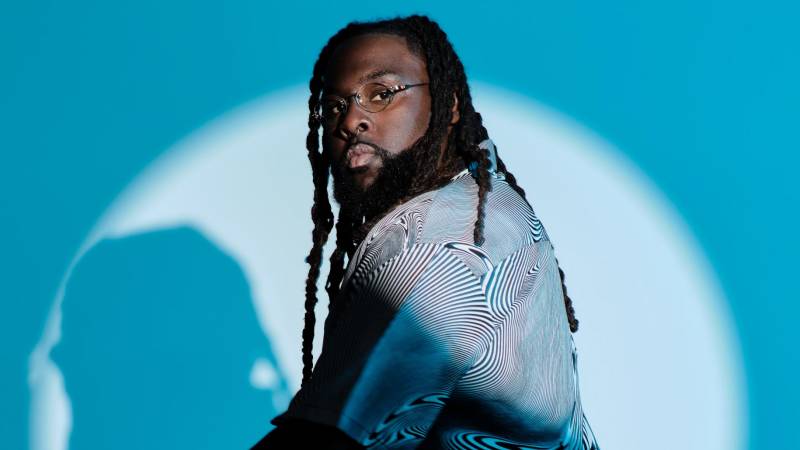Raj was so overwhelmed with responsibilities that he didn’t have time for any sort of emotional release. “I felt like if I broke down, everything would break down,” he says.
Music became a crucial outlet. He started jotting down notes about important moments and feelings in his phone’s notes app. When his mom dialed into his family’s weekly prayer call, Raj, who identifies as spiritual but not religious, hit record. Linda’s prayers for healing and strength, and for protection for Raj, weave together the tracks on The Blue Hour, where Raj oscillates between hope, sadness, anger, acceptance and longing.
“I understand the power in just telling my story and how that can help people dealing with the same thing or going through grief,” he says. “It’s something that I had to do that was on my heart. … In those moments where I questioned it, it was like my heart was telling me, ‘You’re doing the right thing.’”
Tragically, Linda passed away in the spring of 2021. In the months afterward, Raj wrote most of the songs on The Blue Hour in his parents’ old computer room—where he made some of his first songs as a teenager on the family PC. He continued to care for Otis, who passed away from his health issues later that summer.
T
he Blue Hour isn’t the first time Raj has processed loss through music. Father Figure 3 contemplated the absence of two of his closest childhood friends, one of whom was killed as a bystander in a shooting, one of whom is currently incarcerated for unrelated reasons. But caring for and then losing his parents was a more intimate experience. At times, Raj felt self-conscious about putting so much vulnerability into the music. But he stayed motivated by the idea of helping others by giving voice to their pain.
“People [are] in my DMs who relate to just feeling grief, harboring it and not being able to express it—preparing theyself for grief, you know, because they have sick parents or grandparents,” he says.
Indeed, over three years into the pandemic, the United States is overdue for a reckoning with grief. Over a million Americans have died from COVID-19. There’s been no national day of mourning, no break from capitalism’s demands. And as millennials like Raj, who is 32 years old, get older, many in our generation are facing the realities of caring for aging and sick parents for the first time.
“The thing about grief is that it just stays with you,” Raj says. “So you have these people who’ve been in this constant state of grief that have been wanting to get these things off their chest. But they can’t. They don’t because they don’t want to be too heavy or they don’t want to be a Debbie Downer. I don’t want to constantly bring down the mood. So I find myself in these long, long conversations with people.”
That feeling of ongoing grief is palpable on “new normal + mom,” where Raj softly sings about still feeling his mom’s spirit to the gentle thrum of an acoustic guitar. “Hands and Knees” plunges into the depths of anxiety and anger as Raj questions the loyalty of friends and family members who didn’t show up for him in this difficult period.
The Blue Hour’s singles are more radio friendly, with sleek, bass-heavy production, but the pain is still audible as Raj reaches for stability and clarity on “Balance” and “Beauty in the Madness,” featuring Wale and Fireboy DML. “Save Yourself,” with its somber take on a funky bass line with a Bay Area knock, speaks to the isolation of having no one to rely on but yourself.
As Raj worked on The Blue Hour, music brought him back to friendship and community. He rented a house in Los Angeles and invited some of his closest collaborators, including P-Lo, YMTK and Ekzakt, to work with him.
Making music with friends was comforting, but as Raj prepares to let the The Blue Hour into the world, he’s faced with the feeling that the people he most wants to share his success with won’t be there. “One of the biggest things that grief has taught me is that a lot of this shit that I was doing was really for validation from my parents,” he says, recalling how he’d FaceTime his mom from a tour in London or from the stage at a sold-out show.


